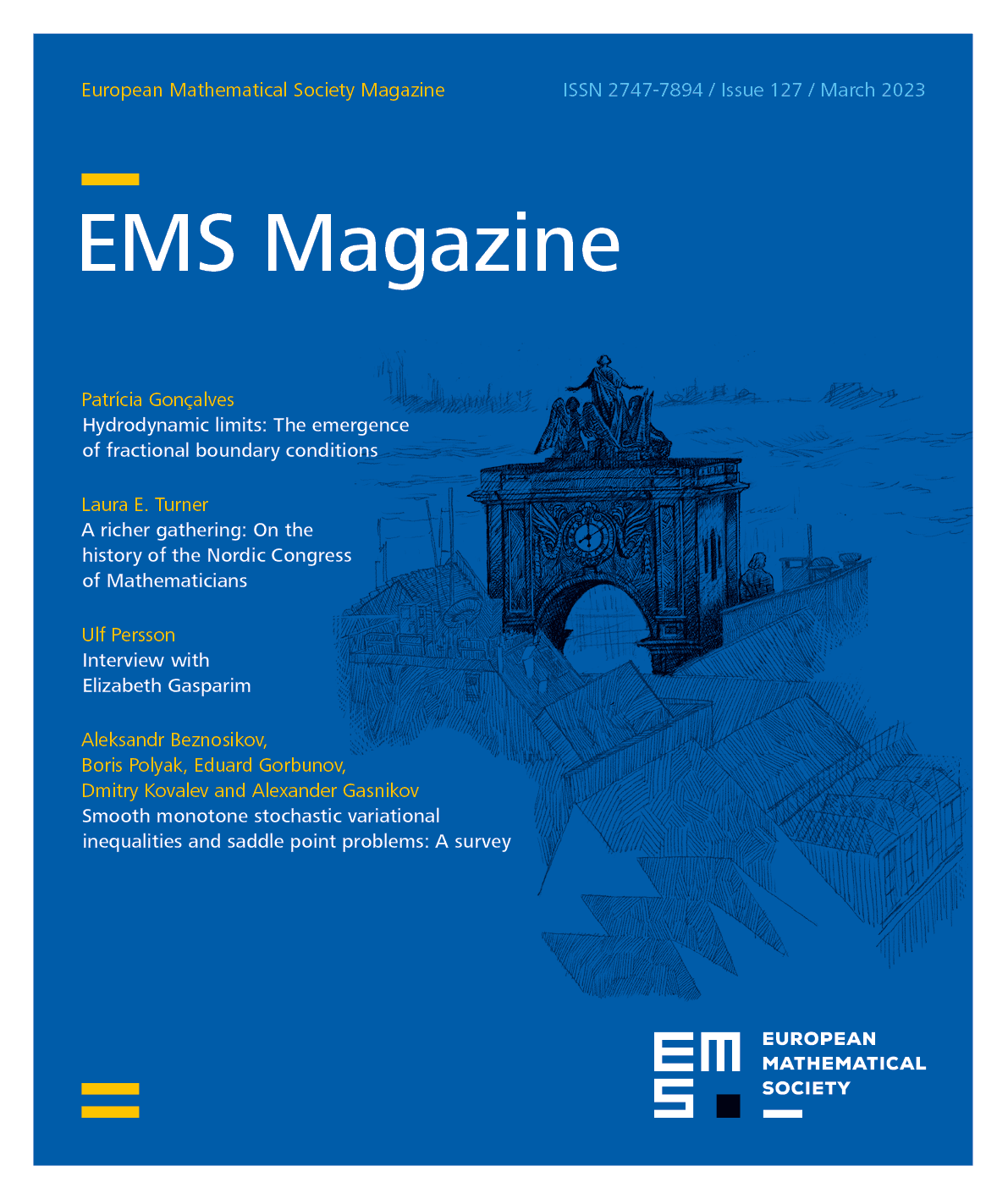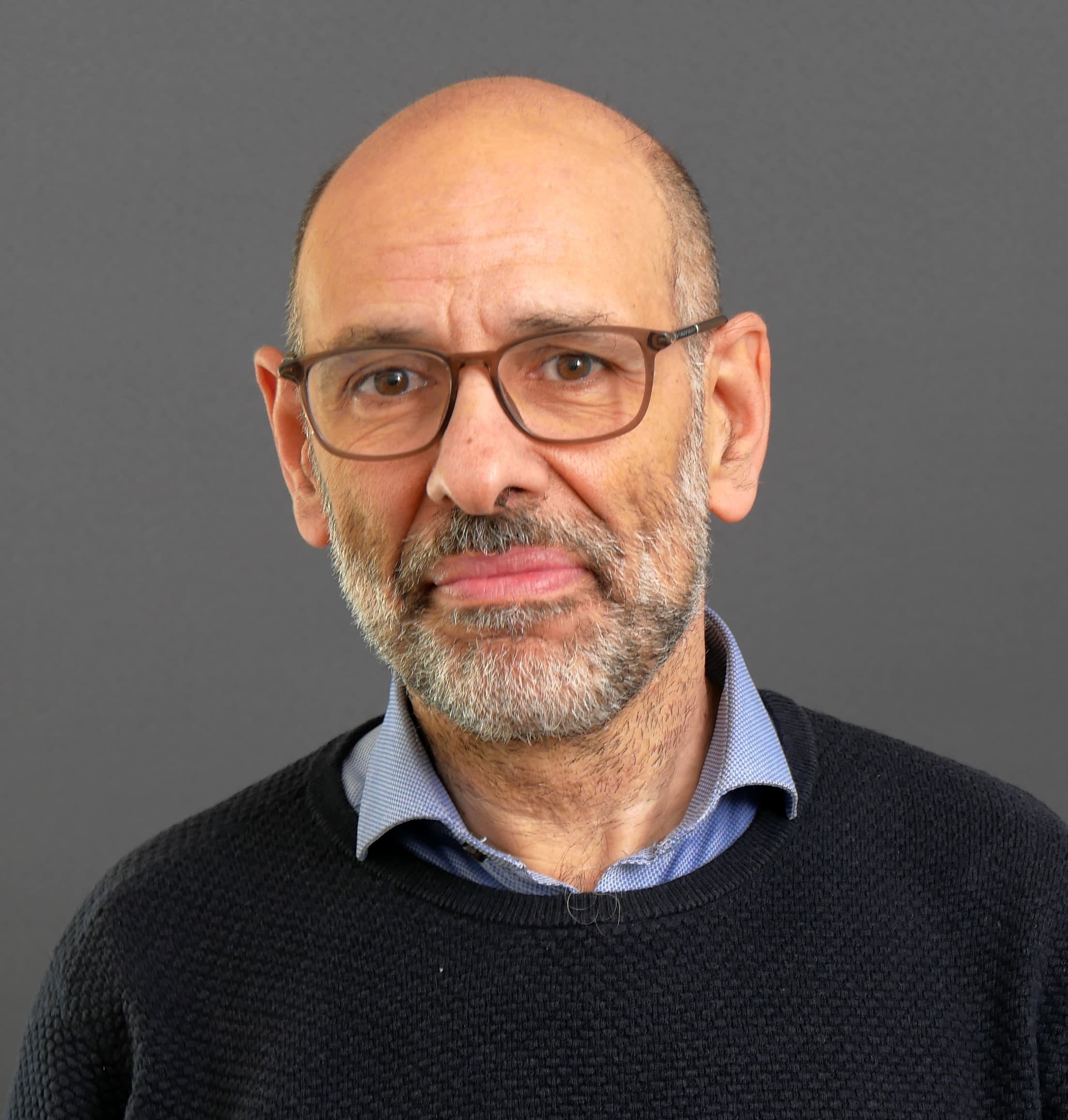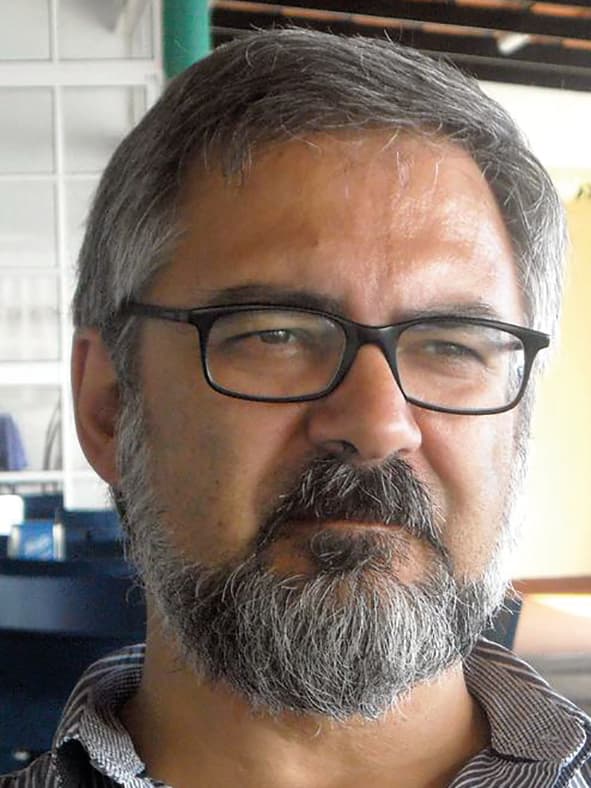Photo by Jim Høyer, University of Copenhagen
©All rights reserved.
This is my first message as president of the European Mathematical Society since I took up office on January 1st, 2023. It is such a great honor, a great responsibility, and a great opportunity to work for the mathematical community in Europe. To introduce myself, I have been a professor of mathematics at the University of Copenhagen for over 25 years. Before that, I had positions at Aarhus University and at Princeton University. My research field is mathematical physics and, alongside my research and teaching, I lead the Centre for the Mathematics of Quantum Theory (QMATH) at the University of Copenhagen. I am also editor-in-chief of the Journal of Mathematical Physics and head of studies for the Master Program on Quantum Information Science offered jointly by the University of Copenhagen and the Technical University of Denmark. Throughout my career, I have continued to think of myself as a researcher and as an educator, and I have tried to put equal emphasis on both. I have had several administrative positions, both nationally and internationally: I have chaired the ERC Advanced Grant Mathematics Panel three times and been a Danish representative in Science Europe.
I have not previously had the opportunity to work for the European Mathematical Society, but I am very much looking forward to getting to know the society even better and to interacting with all of the many devoted people who work tirelessly for the EMS and for all the national societies that are institutional members of EMS. I strongly believe that EMS has been, and should continue to be, an important instrument for the promotion of mathematics in Europe in both the mathematical community itself as well as the outside world. The EMS has an important responsibility to facilitate the interaction between European mathematicians across national borders and scientific fields. In contrast to the national societies, it is indeed the role of the EMS to bridge cultural differences within European research and education – differences that may be seen as a fragmentation of the field, but should, to my mind, be perceived as a great resource for expanding the research and education we already do.
EMS should be the voice of mathematics in Europe making itself visible to the various political systems here, but also to the public at large. EMS should engage with politicians in Europe to ensure the best conditions and funding opportunities for mathematical research as well as for mathematical education. This can only be achieved by constantly emphasizing the importance of mathematics and continuing efforts to increase its visibility. Mathematicians often feel misunderstood or marginalized. I do not believe this is the case. I do not believe that anybody could sensibly question the importance of mathematics today. EMS should be a platform for the celebration of the importance and beauty of mathematics in all its diversity.
One of the most important roles a society such as EMS has is to disseminate research in a transparent and open way. The EMS should be actively involved in supporting open science and in ensuring that mathematics has a role in open science initiatives. In the fast changing world of scientific publishing, it is important that society publishers offer alternatives to commercial publishers, in particular, in the ways we choose to implement open access. EMS has taken a very important step in that direction with the creation of its publishing house, the EMS Press. The EMS Press has chosen the Subscribe to Open (S2O) route to open access. The idea is that journals become openly available when there are enough subscribers. Over the years, I have been very engaged in the discussion around open access within Europe. Open access to publications, and open science in general, are extremely important. It is, however, as important that there is equal opportunity for all researchers to participate in open science. I believe Subscribe to Open is an excellent and fair approach to open access and I hope the EMS Press will be successful in promoting it. I am certain that the EMS Press will continue to grow and I am very much looking forward to being involved in this development.
I would like to take this opportunity to thank the outgoing president Volker Mehrmann. As president, he had to struggle with a great many difficulties, such as the pandemic and a serious international conflict still taking place within Europe. Nevertheless, together with the Executive Committee he managed to initiate several very important initiatives aimed at increasing the engagement of individual members in the EMS. One initiative is the creation of topical activity groups (EMS-TAGs) intended to enhance scientific cooperation across all mathematical fields in all of Europe. Another initiative is the EMS Young Academy (EMYA). Junior mathematicians from all over Europe can be elected to EMYA for a 4-year term. The inaugural group of approximately 30 members will be announced this spring. The EMS hopes that EMYA will give the younger generations of mathematicians greater exposure and will help support their career perspectives. The EMS, however, also hopes that this will be an opportunity for the younger generations to get more involved with the EMS. I am very excited about all of these initiatives, and I personally hope that these are only the first in a series aimed at increasing the exposure of individual EMS members, as well as helping to promote a greater sense of involvement from members in the work of the EMS. I believe it is time for the EMS to move beyond its role as mainly a society of societies and for it to become also a society for individual members.
I am very much looking forward to being the president of the EMS. I am lucky to take over a thriving society with a well-established publishing house. I realize that there will be a lot of work and that there will be difficulties, but I am convinced that it will also be an exciting and fruitful experience. In particular, I am looking forward to the interaction with mathematicians from all over Europe and from all the diverse fields of the subject.
Jan Philip Solovej
President of the EMS
All rights reserved.
Dear readers of the EMS Magazine,
This issue of our Magazine marks a number of changes. The first and certainly the more relevant for the Society is the change of presidents. To the new president, Jan Philip Solovej, the Magazine editorial team wishes a very successful mandate. We hope the Magazine will continue to have in him a voice at least as encouraging and supportive as we received from the last president, Volker Mehrmann, to whom I would like to thank for all the ideas and useful suggestions, and, not least, for the invitation he addressed me at the beginning of 2020 to direct the Magazine.
The other main change in this issue concerns the editorial team: Vladimir Popov and Vladimir Salnikov completed their second four years term as editors at the end of 2022 and, as is the practice of the Magazine, they left the team. I thank both for all their good work for the Newsletter/Magazine over the last eight years. To reinforce the editorial team, two new editors are starting their duties with the current issue: Jason Cooper, who was already collaborating in the ERME Column and now becomes the editor responsible for Mathematics Education, and Youcef Mammeri, who will reinforce the Features and Discussion team. A short biographical note of each of them can be found at the end of the issue. I am grateful to both for accepting to dedicate part of their time to our Magazine.
Fernando Pestana da Costa
Editor-in-chief
Cite this article
Jan Philip Solovej, Fernando P. da Costa, A message from the president // Brief words from the editor-in-chief. Eur. Math. Soc. Mag. 127 (2023), pp. 3–4
DOI 10.4171/MAG/134

